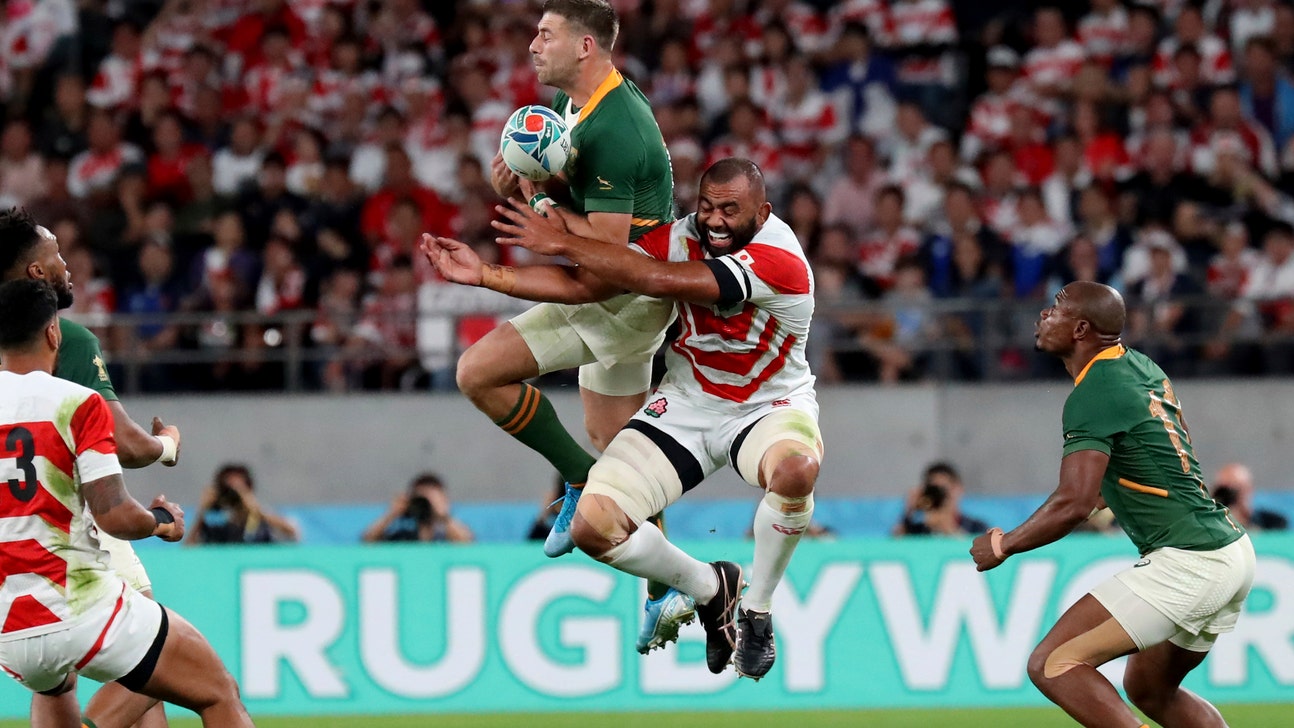
No shocker this time: Springboks smother Japan at World Cup
TOKYO (AP) — Handre Pollard knew what to expect when he lined up against Japan, four years after being on the losing end of the most shocking upset in Rugby World Cup history.
South Africa's leading scorer took a deep breath when Japan held off Scotland in the last of the 40 group-stage games last weekend to set up a rematch of the so-called Miracle of Brighton.
Japan's four wins in the pool phase had galvanized support in the home nation, attracting unprecedented interest and support.
Japan's style of running rugby had made them the second-favorite team for rugby fans all over the world.
And the multicultural composition of Japan's squad meant there were even South Africans who'd be backing them in Sunday's quarterfinal at Tokyo Stadium.
"From the fixture being announced we said it was us against the world," Pollard said, "but we embraced it.
"It was always going to be tough with that crowd and the whole hype around it, but the boys handled it pretty well."
South Africa played to its strengths and smothered the smaller, faster Japan team, turning a 5-3 halftime lead into a 26-3 victory to move into a semifinal against Wales.
Pollard played the role of villain early in the second half, kicking three penalty goals from the 44th to the 64th minutes to establish an 11-point cushion.
At Brighton in 2015, a Pollard penalty had given South Africa the lead with eight minutes to play but Japan clinched that historic 34-32 upset with an injury-time try.
Not this time. The Springboks killed off any chance of a comeback with two tries in five minutes to scrumhalf Faf de Klerk and winger Makazole Mapimpi, who finished off a long-range attack in the 70th minute for his second five-pointer of the match.
Another Springboks veteran of that loss in Brighton, Tendai Mtawarira, made it tough in the first half when he was sent to the sin-bin for 10 minutes for a tip-tackle. It left South Africa defending with 14 men, and even meant Japan took a tighthead against a significantly more powerful Springbok scrum.
"We made it tough for ourselves in the first half. We had a few opportunities and threw them away," Pollard said. "We said at halftime that we have to be more accurate in the second half. And I thought we were."
South Africa captain Siya Kolisi went on as a replacement in '15 against Japan, but wasn't scared by the experience. Instead, he used it as a benchmark. After all, South Africa recovered from that to reach the semifinals in England.
"Honestly, it was exactly what we expected. We knew exactly what Michael Leitch and his boys were going to bring today," he said. "They said they would come for us at our set piece. It took a lot out of us to keep on fighting but credit to my boys, we fought and ground it out."
He also commended Japan's team and its supporters, who ensured the success of the first World Cup staged in Asia.
"To play in front of this beautiful crowd here — the people of Japan have been amazing," Kolisi said. "You should be really proud of your team. They gave it everything out there."
Rassie Erasmus has picked up a Springboks squad in despair and turned it into the champion of the southern hemisphere's annual tournament.
A group-stage loss in Japan to New Zealand was a setback, but meant the Springboks would avoid the defending champions in the knockout stage until the final — if both teams advance that far. New Zealand meets England in the semifinals, and the Springboks would have to overcome Six Nations champion Wales.
Erasmus is feeling OK about his team's prospects.
"We have conceded three tries in the World Cup, and two of those were against New Zealand in four minutes," Erasmus said. "We haven't had long spells where we were under pressure and actually folded in our defense.
"I know a lot of people see a few holes in our defense, but we trust our system. We were really under a lot of pressure today, and especially with the pace of the game ... so that was good for a lot of players to get used to."
